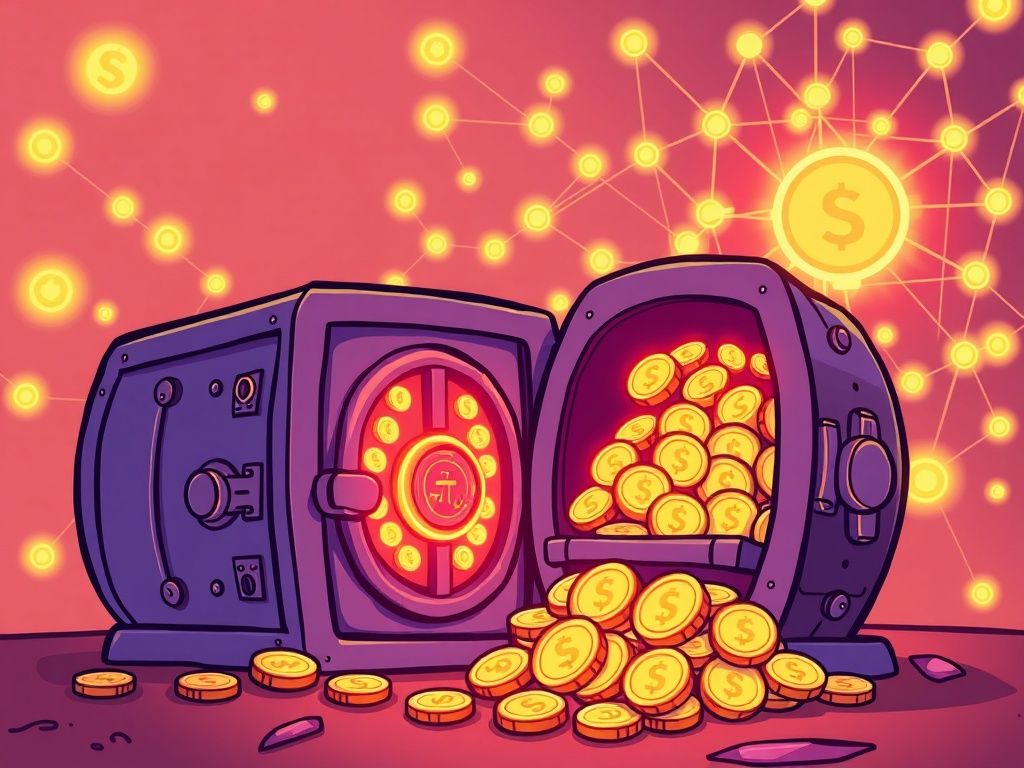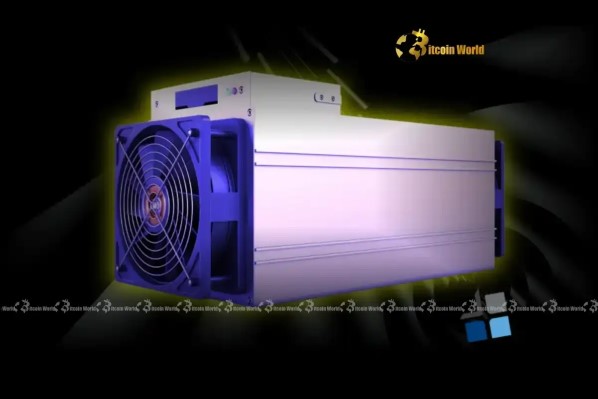BitcoinWorld

Jito Labs Proposal: A Revolutionary Step for Solana Decentralization
A truly significant development is poised to reshape the Solana ecosystem, thanks to a bold and forward-thinking move by Jito Labs. This prominent Solana infrastructure firm has officially put forth a groundbreaking Jito Labs proposal, known as JIP-24, aiming to fundamentally alter how network fees are managed within its protocol. Initiated on August 5, the proposal seeks to redirect all Block Engine and Block Assembly Marketplace (BAM) fees directly to the Jito DAO treasury. This initiative isn’t just a technical adjustment; it marks a pivotal and exciting step towards greater Solana decentralization, promising a more community-driven and robust future for the high-performance blockchain.
What Exactly Does This Jito Labs Proposal Involve?
The core of the Jito Labs proposal, JIP-24, is designed to be both straightforward and profoundly impactful. It proposes a clear shift: all revenue currently generated from Jito’s crucial Block Engine and the Block Assembly Marketplace (BAM) would no longer be retained by Jito Labs. Instead, every penny of these valuable block engine fees would flow directly into the collective Jito DAO treasury.
This means a significant transfer of power. Rather than Jito Labs maintaining control over these substantial earnings, the decentralized autonomous organization (DAO) would gain complete stewardship. The DAO, which is democratically governed by JTO tokenholders, would then possess the authority to decide how these accumulated funds are utilized. This fundamental shift transforms what was once proprietary protocol revenue into a shared, community-owned asset, reflecting a true commitment to decentralized principles.
Why is Redirecting Block Engine Fees a Game-Changer for Solana Decentralization?
The principle of decentralization lies at the heart of blockchain technology, and this Jito Labs proposal directly amplifies it. By channeling all block engine fees to the Jito DAO treasury, Jito Labs is actively cultivating enhanced Solana decentralization. It effectively removes a centralized point of control over a significant stream of protocol revenue, thereby distributing power and decision-making capabilities more broadly among the very JTO tokenholders who actively participate in the DAO’s governance.
This strategic move offers a multitude of compelling benefits for the Jito protocol and the broader Solana network:
- Unprecedented Transparency: Every decision regarding fee allocations and spending would be conducted openly and recorded on-chain through DAO governance, fostering trust and accountability.
- True Community Empowerment: JTO tokenholders gain direct and meaningful influence over the protocol’s financial trajectory, enabling them to steer its development and priorities.
- Reduced Centralization Risks: By diversifying control over crucial funds, the proposal significantly mitigates potential risks associated with a single entity holding disproportionate power or influence over the protocol’s financial health.
- Enhanced Long-Term Sustainability: A well-funded and democratically managed Jito DAO treasury can reliably fund critical future development initiatives, bolster security measures, and catalyze ecosystem growth, thereby ensuring the enduring longevity of the Jito protocol and making a substantial contribution to overall Solana decentralization.
- Alignment of Incentives: This structure aligns the financial success of the protocol directly with the interests of its community, encouraging active participation and responsible governance.
What’s the Outlook for JTO Tokenholders and the Solana Ecosystem?
If this visionary Jito Labs proposal receives approval, it will undoubtedly empower JTO tokenholders in an unprecedented way. They will become the collective arbiters of how these substantial funds are allocated, potentially leading to exciting new opportunities such as:
- Establishing robust incentive programs for network participants.
- Providing grants to talented developers building on Jito and Solana.
- Funding crucial research and development to push the boundaries of MEV solutions.
- Potentially even facilitating direct distributions to active community members, as determined by DAO votes.
This represents a powerful real-world example of a decentralized protocol truly transitioning towards genuine community ownership and governance.
The implications of JIP-24 extend far beyond just the Jito protocol itself. This pioneering initiative sets a powerful precedent for other protocols operating within the Solana ecosystem, showcasing a viable and effective path towards greater autonomy and robust decentralized governance models. It strongly reinforces Solana’s overarching commitment to building a resilient, scalable, and most importantly, community-governed blockchain. The upcoming vote on JIP-24 will undoubtedly be a crucial and closely watched moment, not just by those directly invested in JTO, but by everyone keen on the future of Solana decentralization and the evolving landscape of decentralized finance (DeFi).
In summary, the audacious Jito Labs proposal to direct all block engine fees to the Jito DAO treasury represents a monumental and inspiring step forward for the Solana network. It not only reinforces the fundamental principles of decentralization but also profoundly empowers JTO tokenholders, paving the way for a more transparent, equitable, and truly community-controlled future for the Jito protocol and the wider Solana ecosystem. This initiative truly exemplifies the transformative spirit of Web3, where power organically shifts from centralized entities to the collective wisdom and active participation of its vibrant community members.
Frequently Asked Questions (FAQs)
Here are some common questions about the Jito Labs proposal:
Q1: What is JIP-24?
A1: JIP-24 is a governance proposal put forth by Jito Labs to redirect all Block Engine and Block Assembly Marketplace (BAM) fees to the Jito decentralized autonomous organization (DAO) treasury.
Q2: What are “block engine fees” in this context?
A2: Block engine fees refer to the revenue generated by Jito’s Block Engine and Block Assembly Marketplace (BAM), which are key components of Jito’s infrastructure for MEV (Maximal Extractable Value) capture on Solana.
Q3: How will JTO tokenholders benefit from this proposal?
A3: If approved, JTO tokenholders, as members of the Jito DAO, will gain direct control over how the accumulated Jito DAO treasury funds are managed and allocated, empowering them to influence the protocol’s future development and initiatives.
Q4: How does this proposal contribute to Solana decentralization?
A4: By shifting control of significant protocol revenue from a centralized entity (Jito Labs) to a community-governed DAO, the proposal significantly enhances Solana decentralization, distributing power and decision-making across a broader base of JTO tokenholders.
Q5: What is a DAO treasury?
A5: A DAO treasury is a digital fund controlled by a decentralized autonomous organization (DAO). Members of the DAO, typically holding its governance tokens, vote on how the funds are used for protocol development, community initiatives, or other purposes, ensuring transparent and collective management.
Did this article shed light on the exciting future of Solana decentralization? If you found this information valuable, consider sharing it with your network! Help us spread the word about Jito Labs’ innovative proposal and its potential impact on the decentralized world. Your shares help others understand these crucial developments.
To learn more about the latest crypto market trends, explore our article on key developments shaping Solana price action.
This post Jito Labs Proposal: A Revolutionary Step for Solana Decentralization first appeared on BitcoinWorld and is written by Editorial Team





